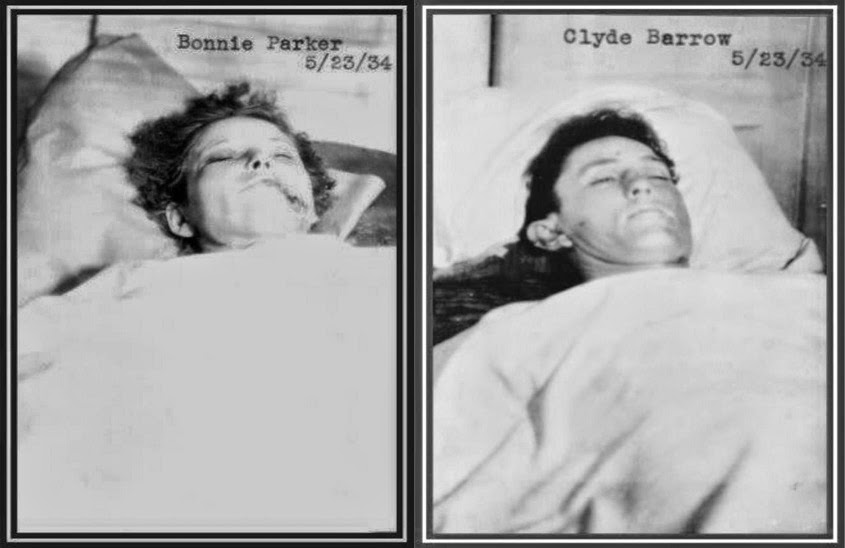The infamous story of Bonnie and Clyde has captivated the American public for decades, not only due to their criminal exploits but also because of their tragic end. The Bonnie and Clyde death saga reflects the ultimate consequences of a life of crime, and it raises questions about love, loyalty, and the pursuit of the American Dream. This article delves deep into the lives of Bonnie Parker and Clyde Barrow, exploring their criminal activities, their relationship, and the day they met their demise.
Bonnie and Clyde were not just criminals; they were symbols of a tumultuous era during the Great Depression, representing both rebellion and desperation. Their story transcends mere headlines, revealing the complexities of their personalities and the societal conditions that shaped their choices. While many romanticize their lives, their deaths serve as a stark reminder of the reality of crime and its consequences.
This comprehensive exploration of Bonnie and Clyde’s deaths will cover their notorious escapades, the law enforcement efforts to capture them, and the fateful day they were ambushed. By examining these elements, we aim to provide a thorough understanding of why their story continues to resonate in popular culture and academic discussions alike.
Table of Contents
- Biography of Bonnie and Clyde
- Criminal Activities
- The Law Enforcement Pursuit
- The Ambush
- Aftermath and Impact
- Cultural Legacy
- Conclusion
- Sources
Biography of Bonnie and Clyde
Bonnie Parker
Bonnie Parker was born on October 1, 1910, in Rowena, Texas. Raised in a poor family, she showed an early interest in literature and poetry, often writing about her dreams and aspirations. Bonnie met Clyde Barrow in 1930, and their relationship quickly turned romantic. Bonnie became deeply involved in Clyde’s criminal activities, often seen as his partner in crime.
Clyde Barrow
Clyde Barrow was born on March 24, 1909, in Telico, Texas. Coming from a large family, Clyde quickly fell into a life of crime, engaging in petty theft before escalating to bank robberies. His fierce reputation and charisma attracted Bonnie, and together, they formed one of the most infamous criminal duos in American history.
Bonnie and Clyde: Personal Data
| Name | Date of Birth | Place of Birth | Death Date | Cause of Death |
|---|---|---|---|---|
| Bonnie Parker | October 1, 1910 | Rowena, Texas | May 23, 1934 | Gunshot wounds |
| Clyde Barrow | March 24, 1909 | Telico, Texas | May 23, 1934 | Gunshot wounds |
Criminal Activities
Bonnie and Clyde’s criminal career began with small-time thefts but quickly escalated to bank robberies and violent confrontations with law enforcement. Their exploits included:
- Bank robberies across several states, including Texas, Oklahoma, and Missouri.
- Theft of cars and firearms.
- Kidnapping of law enforcement officers.
- Involvement in multiple shootouts with police.
Throughout their criminal career, they built a reputation for their daring heists and ability to evade capture. Their exploits were often romanticized, leading to a sort of folk hero status among the public.
The Law Enforcement Pursuit
The rise of Bonnie and Clyde did not go unnoticed by law enforcement agencies. Their criminal activities prompted a massive manhunt involving local and federal authorities. Key points in the pursuit include:
- The formation of special task forces dedicated to capturing them.
- Involvement of famous lawmen like Texas Ranger Frank Hamer.
- Use of the media to track their movements and publicize their crimes.
The relentless pursuit by law enforcement ultimately set the stage for their final confrontation.
The Ambush
On May 23, 1934, Bonnie and Clyde met their end in Bienville Parish, Louisiana. Under the guidance of Frank Hamer, law enforcement set a trap for the couple. Key moments of the ambush include:
- Law enforcement officers positioned themselves along the road where Bonnie and Clyde were expected to pass.
- As they approached, the officers opened fire, resulting in a hail of bullets.
- Both Bonnie and Clyde were killed instantly, marking the end of their criminal reign.
Aftermath and Impact
The deaths of Bonnie and Clyde sent shockwaves through America. Their funerals drew large crowds, with many mourning the loss of the young couple. The aftermath of their deaths led to:
- A surge in media coverage, further romanticizing their lives.
- Increased public interest in crime and the criminal justice system during the Great Depression.
- The establishment of stricter law enforcement practices in response to the rise of organized crime.
Cultural Legacy
Bonnie and Clyde’s story has permeated popular culture, inspiring numerous films, songs, and books. Some notable mentions include:
- The 1967 film "Bonnie and Clyde," which portrayed their story with a mix of romance and violence.
- Countless songs that reference their adventures and romance.
- Books and documentaries that analyze their lives and the socio-economic conditions of their time.
Their legacy continues to provoke discussions about crime, love, and the American identity.
Conclusion
The tale of Bonnie and Clyde is one of love, crime, and tragedy. Their deaths marked the end of an era, yet their story lives on as a cautionary tale about the consequences of a life of crime. As we reflect on their lives and deaths, it is essential to consider the social conditions that drove them to their fate. We encourage readers to leave comments, share this article, or explore more about the fascinating history of America’s notorious criminals.
Sources
1. "Bonnie and Clyde: The Lives and Deaths of a Notorious Couple" - History.com
2. "The True Story Behind Bonnie and Clyde" - Biography.com
3. "Bonnie and Clyde: A Crime Story" - National Geographic
4. "The Legacy of Bonnie and Clyde" - PBS.org


_1+-+Copy.jpg)